Never Stop Learning: Pushing Your Comfort Zone
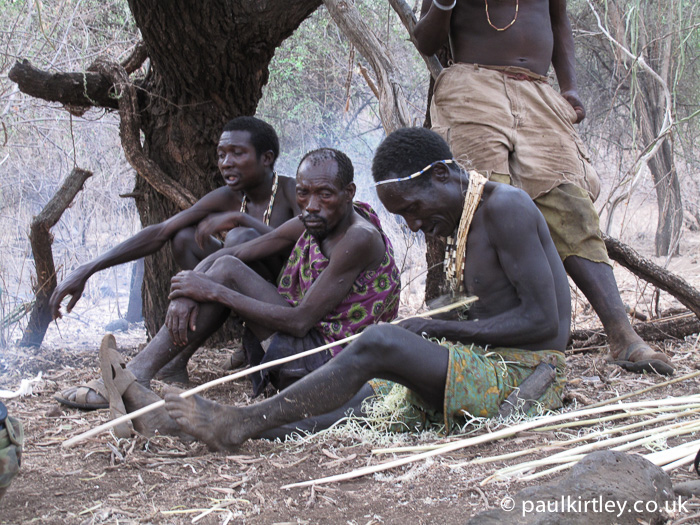
“You never stop learning”, is a phrase you may well have heard in relation to bushcraft.
In fact, it’s become a little bit of a cliché.
To me it’s unfortunate that this phrase runs off people’s tongues a little too easily; because wrapped up inside it, is a real nodule of truth that we don’t always stop to uncover or examine.
Being a true student of bushcraft is being a student of nature.
And, in simple terms, nature is huge.
There is still much we do not understand about the natural world. As a species we continue to explore, examine, experiment and attempt to explain our planet from the oceans to the rainforests.
Even our knowledge of what our forebears once knew about the natural world is patchy, particularly in regions where the hunter-gatherer life is buried deep in the past.
In regions where a tradition of living from the land is more recent, we know a lot more through the diligent work of anthropologists and ethnobotanists. For example, Native North Americans had use for over 4,000 species, sub-species and varieties of plants with nearly 45,000 documented uses (Daniel E. Moerman, Native American Ethnobotany, Timber Press, 1988).
Personally I’m humbled by these figures.
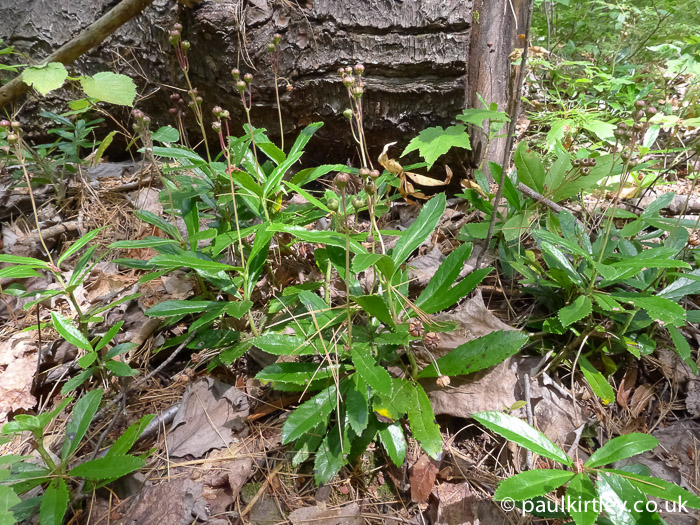
Clearly North America is a large area of land, with varied climates and a wide range of habitats. Each group of people would have used a subset of the above species, and those uses varied from group to group. Even so, their knowledge was still deep and broad.
It illustrates the point that people who truly live by their bushcraft have a detailed and intimate knowledge of the natural environment in which they live.
This is something I have witnessed first hand in Africa with the Hadza. Indeed, anthropologists who have studied and recorded the Hadza diet have noted it contains more than 880 species, the majority of which are animals and birds. (Frank Marlowe, The Hadza: Hunter-Gatherers of Tanzania, University of California Press, 2010). In terms of frequency of consumption and contribution to total calorie intake, however, the balance lies in favour of plants.
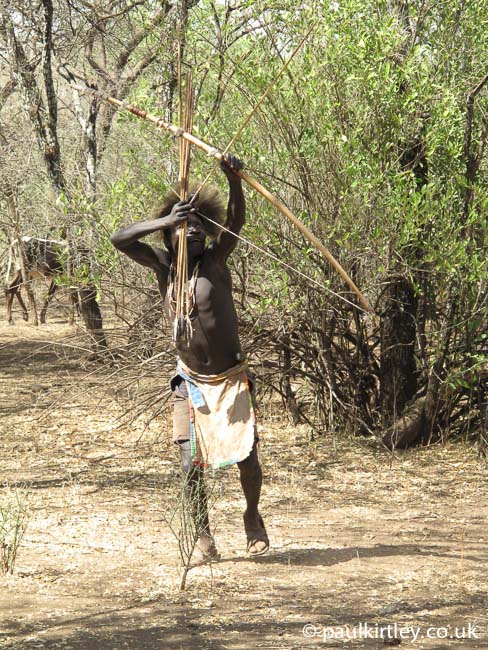
Recently I was talking with a friend who has spent time in Sierra Leone as well as other parts of Africa. He made the point that in many places he went, people are routinely using skills with a degree of proficiency that would put many bushcraft aficionados to shame, from women catching turtles for lunch to teenagers creating a hammock from natural cordage in an afternoon to small children weaving intricate baskets.
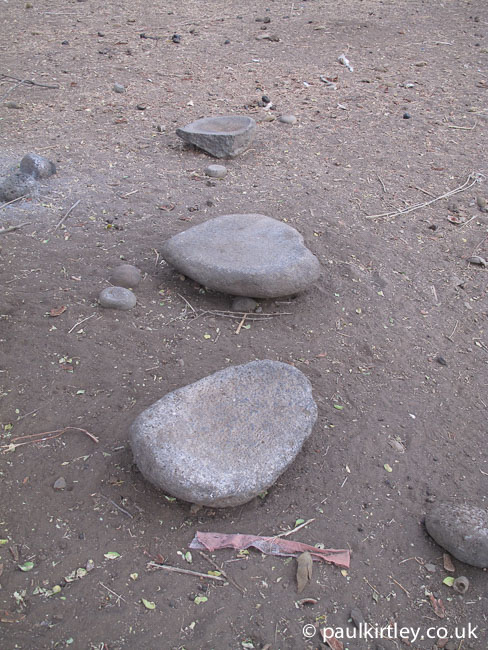
My view is that the majority of people in the first world who are interested in bushcraft and survival skills are too easily satisfied with what they know and congratulate themselves on a level of skill which is not particularly high.
Self-Limiting Beliefs
As with anything in life you are only ever as good as you allow yourself to be.
Generally most of our limitations are self-imposed either explicitly (“I can’t…”, “I couldn’t…”, “I don’t want to…” “I don’t see the relevance…”, “I don’t have the time…”), or implicitly (being too easily satisfied or not having sought out a sufficiently high benchmark).
You might already be formulating a “Yes but…” style of response to the last few paragraphs…
But we all have to start any process of expansion and improvement of what we know and what we can do by being honest with ourselves about what we do and don’t know (and why that’s the case).
Always Remain A Student
I teach bushcraft and survival skills. I am a bushcraft instructor. It’s what I do for a living.
One thing I’ve noticed over the years is that as soon as you have the word “instructor” attached to you, other people think you know everything about a subject.
That’s something that can go to your head if you are not careful.
In a subject area as large and difficult to define as bushcraft, no-one can ever know everything, particularly when you start looking at it on a multi-regional or even global scale.
It’s tempting for an instructor to bask in this spotlight of perceived all-knowing expertise.
I will always consider myself a student of bushcraft, a student of nature and I hope for two things in this respect – that I will continue to learn throughout my life and that I will continue to be in a position that I can share what I learn with other people who will benefit from this knowledge.
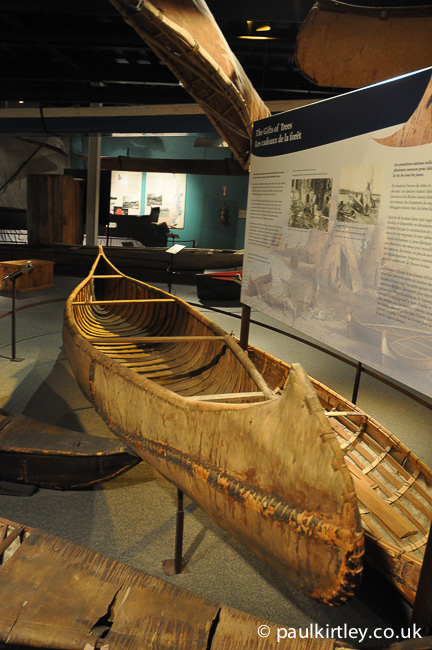
Being Honest With Yourself And Others
I was fortunate in that my mentors stressed that an instructor should never fabricate an answer, that if you don’t know an answer to a question you should say so and endeavour to find out – both for your student’s benefit and for yours – and that you should always be pushing yourself to learn more and become more skilful.
To be effective in this, though, you have to be clear about what you truly know as well as admitting what you don’t know.
To do this, you first have to find out what you don’t know. That’s maybe a subtle point for some people. What I mean is, are you even aware of the existence of the body of knowledge you don’t know? Once you do, then do you know of the people or resources that could help you?
On a simple level, one example is that I’m regularly asked about aspects of bushcraft and survival that are clearly explained in some of the most popular bushcraft books – books that many asking the questions will already have owned for some time.
You have to make the effort to find out what you don’t know and then where you can find out.
Raising Your Own Personal Standards
I enjoy many blogs and videos by bushcraft enthusiasts posting their experiences on the web. It makes me happy to see people going out, camping in woodland and being joyful about being out amongst nature.
Much of what people are doing under the moniker of bushcraft, though, is camping with a fire, cooking some hearty meals and maybe doing some whittling.
Of course, there is nothing wrong with any of these activities. It’s just that there is so much more to bushcraft.
Even within the context of static camping with a fire, I see evidence of many campcraft skills which could be much more refined.
In making both of the above observations, I don’t for a minute think that people purposely set out with low aspirations. They simply have not been made aware of relevant, higher benchmarks.
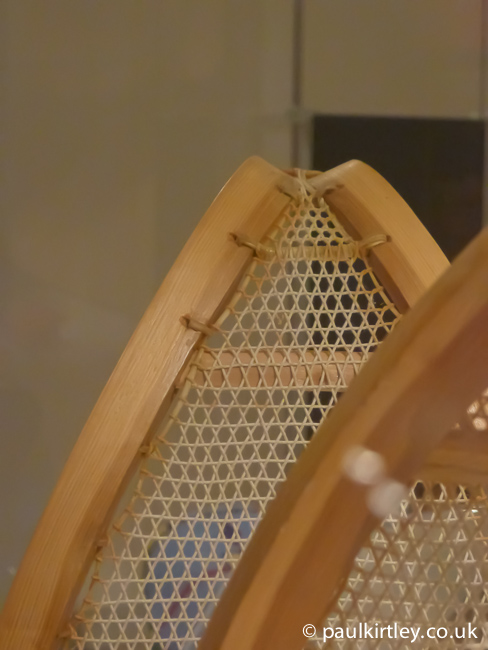
While individuals can seek out these benchmarks for themselves, I think it’s also important for those who put themselves in a position where they teach skills to be honest about the level at which they are operating.
Currently, bushcraft is largely being defined in popular perception by a combination of the subject areas bushcraft schools and independent instructors provide training in (which is, in turn determined by what is commercially viable), crossed with a commercial imperative for equipment manufacturers to sell kit, combined with the material the many enthusiasts post on the internet.
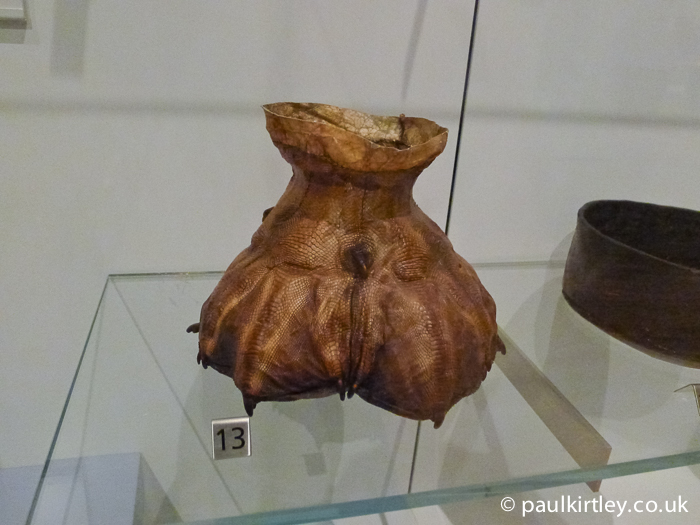
Whoever you are, to become more skilful you have to be motivated to refine what you do know, you need to know about what you don’t know, and be willing to hold yourself to a higher standard than you have in the past.
A key set of benchmarks I think we should not lose sight of are the skills and knowledge of those who have had to – or still do – rely on their abilities in order to live from the land. We can look at ethnographical accounts of days gone by, we can look at museum pieces which display incredible craftsmanship and we can look to those few traditional societies who to this day, live from the land.
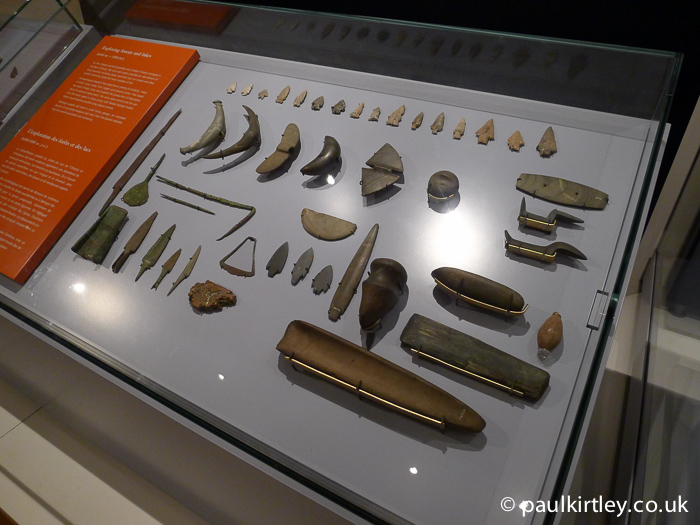
But if comparing your level to this gold standard is too much of a leap, you can start by challenging your basic bushcraft and survival abilities in relation to your own environment.
Start by asking yourself questions along the lines of the following in relation to the environment that you spend time in:
- How many species of plants that provide carbohydrates in their roots, tubers or rhizomes can you identify?
- Can you identify all the nuts and berries in your area, regardless of whether they are edible or not?
- How many species of trees and plants are you confident to use to make a tea?
- Do you know all the seriously poisonous plants that occur in your area?
- How many types of tree and plant fibres have you prepared into cordage?
- How many tree or plant species in your area do you know could be used for bow-drill friction firelighting?
- How many species in your area that can be used for bow-drill friction firelighting have you successfully employed?
- How many plant materials do you know how to identify, locate and prepare for a tinder bundle which will accept an ember from friction firelighting?
- How many different methods of suspending a pot, kettle or Dutch Oven do you know, using only natural materials?
- How many fungi species do you know how to identify, locate and prepare for tinder?
- How many tracks of native mammals and birds can you positively identify?
- With a knife, saw and spoon knife can you produce an eating spoon within 20 minutes of sourcing the wood?
- How many different methods of catching fish do you know?
- How many methods of making traps from 100% natural materials do you know?
- Are you able to butcher small mammals? Birds? Larger mammals?
- Can you tan a hide?
- Can you orient yourself day or night using objects visible in the sky?
- How many constellations can you name?
- Can you make a bow?
- Could you re-handle an axe in the field?
This is by no means an exhaustive list but you no doubt get the idea.
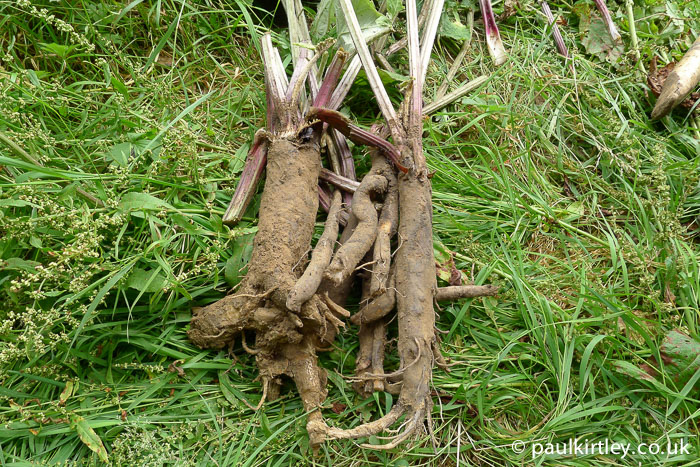
It’s Not How Good You Are, It’s How Good You Want To Be
This is the title of a book that caught my eye on the counter at Waterstone’s bookstore the other day. It was nothing to do with bushcraft or outdoor skills but I thought the title very apt.
I would wager that every single person who reads this article does not have to rely on bushcraft skills to live on a daily basis.
No-one reading this is a hunter-gatherer.
Further, for most people who ever venture outdoors, finding themselves in a survival situation is statistically highly unlikely.
Most people in the developed world who learn bushcraft and survival skills will never have to rely on them in the truest sense of the word.
So we learn these skills because we want to, because we think they are important to know, important to preserve and, even if unlikely, important to possess in order to fall back on if necessary.
It’s a choice we make.
And so it is a choice as to how proficient we become. Nature is not testing our skill on a daily basis. We are not up against it. Instead, we have to provide our own motivation to refine our abilities.
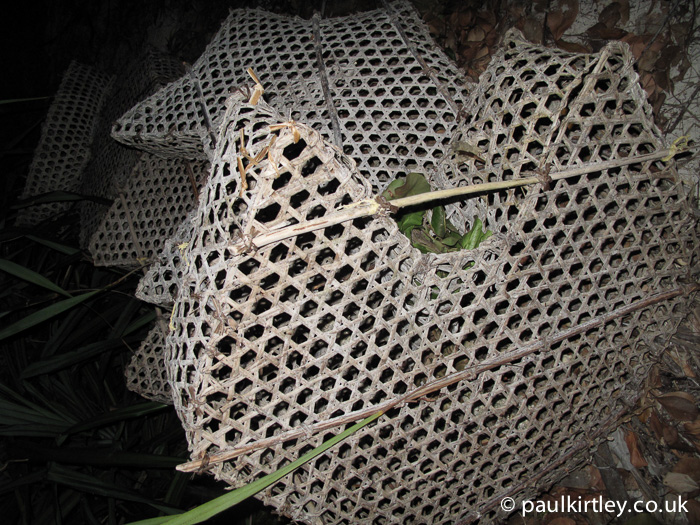
As the title of the book in the bookstore claims, it’s not how good you are, it’s how good you want to be that determines your ultimate level of proficiency.
Moreover, there is a simple trap I see people falling into. I’ve seen it not only in people learning bushcraft skills but also in learning other physical skills. People often have an initial aspiration – to light a fire by “rubbing sticks”, is a common one, for example. Many fewer people start with the aspiration of being able to light a fire by friction by every means possible, using every species available, using every combination of tinder that can be foraged and be able to consistently achieve this whether it is warm or cold, dry or wet, regardless of season.
Plus, most of those who achieve the first, more common aspiration, do not replace it with the second, less common, aspiration once they have achieved their first goal. They quickly become comfortable with their level of achievement. The same observation applies in many areas.
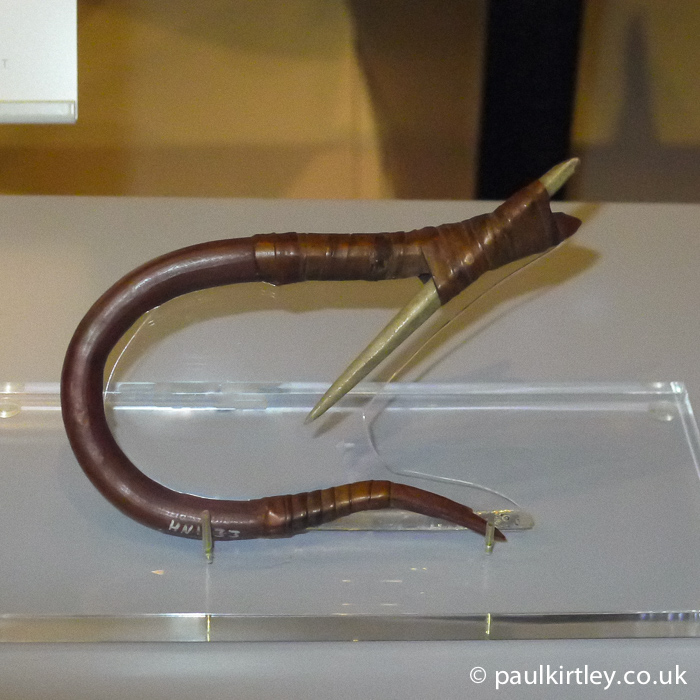
This is how it is, then, that people achieve a level of comfort with what they know and what they can do. Generally it is a long way below what they could achieve if they pushed themselves out of their comfort zone and challenged themselves further.
It’s not even necessarily about things being harder; it’s about doing them repeatedly with different materials. It’s about putting in the work and the time. Practicing 100 uses of trees and plants is not really any harder than 10. Learning to identify 1,000 plants is no harder than learning 100. It just takes consistent application over a longer period.
So, I’d urge you, if you truly want to learn as much as you can about bushcraft and survival skills in the short life we have, then whenever you start to feel comfortable with what you know, push yourself out of that comfort zone.
Only then will you truly never stop learning.
Related Material On Paul Kirtley’s Blog
How To Make Fantastic Feathersticks
How To Live In A Heated Tent
Surviving A Winter’s Night in the Northern Forest: How To Build An Arctic Lean-To
71 thoughts on “Never Stop Learning: Pushing Your Comfort Zone”
Well done Paul, another thought provoking articulate blog. Kind regards Adrian
Thank you Adrian
Best,
Paul
Great piece thank you Paul. I have just in the last couple of weeks started putting together a bushcraft journal and learning targets. This has come at the perfect time for me. Many thanks.
Hi Treve, thanks for your comments. I’m glad this came at a good time for you. Warm regards, Paul
Exactly Paul.
I am in medieval re-enactment for more than 25 years ( lost count to be honest) and I stil learn every day.
It involves a bit of bush-crafting sometimes.
keep up the good work.
Hi Werner,
Thanks for your comment. Yes, all it takes is an open mind and a willingness. Then you are always learning. It’s sometimes surprising how a subject, an activity, an interest can still teach you so many things after many years of practice. There are always new insights.
Warm regards,
Paul
Most of the guys in the Bushcraft space I have come across fall into the ‘comfort zone’ category you mentioned, nothing at all wrong with that it’s just that I like to learn and try new things out every time I venture outdoors, even if only for a short day hike. What it ultimately comes down to is your own drive as a human being and the standards you set yourself, unfortunately most people have very low standards, not only in Bushcraft but also in life. It’s like one of my mentors in business once told me “how you do anything is how you do everything” i.e. if you have intrigue and drive in one aspect of your life, no doubt that same trait will display in other areas of your life, including the journey you take into Bushcraft. A fantastic and thought provoking post as always Paul ~Peace~
Hi Zed,
Nice to hear from you and thanks for your feedback on this post.
I’m glad this resonated with you and it’s good to hear about the approach you take your time outdoors.
Yes, you have to be interested and motivated but, as you know, with consistent application those two factors will take you a long way.
I like the “how you do anything is how you do everything” philosophy.
All the best,
Paul
Hi Paul thank you for a great read as always, when I was in the army I was a class 1 medic and part of my job was to teach first aid, if anyone asked me a question I could not answer I would reply I do not know the answer to that question but I will find out and get back to you, that was how I taught.
I am always learning something and have learnt many things from what you write, Thank you.
Hi Ian,
It’s good to hear from you.
I’m glad this article struck a chord.
I think the “I don’t know the answer to that but I will find out and get back to you” approach is one of the best. It keeps you honest, prevents BS and ultimately serves you and your student very well.
Thanks for reading.
Warm regards,
Paul
Hi Paul
I totally agree with you in that a lot of people stay within their comfort zone. To me one of the best parts of life is learning as much as you can and striving to expand my knowledge of the natural world. Recently I’ve started to teach bushcraft skills at a local school and I’m getting asked a lot of questions that I don’t know or I’m not sure of the answer, the kids seem to appreciate the honesty of saying that you don’t know but that you’ll find out rather than trying to come up with an inaccurate answer.
Another great article mate
James
Hi Paul
another thought provoking blog, Thank you.
From a student’s perspective it’s heartening to hear that those I admire for their knowledge, skills and attitude still consider themselves students too.
If the vast area of life we call bushcraft were a mountain with it’s summit hidden in clouds, it sometimes feels as if “Instructors” are standing on the top of that mountain, or on a precipitous crag part way up, too high up to notice a mere beginner’s struggles, they rarely come down to our level. The way you put things across, thoroughly and with thoughtfulness and patience, you show us beginner students that you are still on the path up the mountain. Granted, you are many days up the trail ahead of us, but your way of comunicating what you know and by your patience and goodwill you make our path up the mountain behind you many times easier.
Thank you.
Oh crumbs, just re-read all that and think I’m having a zen moment… no it’s not the red wine.
Hils
This article coincides with my recent concern that there is much more to know than the woodcraft side of bushcraft. Survival in the wild requires as much bushcraft skill as one can learn. Add to that the many skills needed to work with modern products that are on the market.
As I assemble my gear with different scenarios in mind, the one part of the planning that troubles me the most is food supplies. What makes sense to take? What is too heavy? What will be most nutritious? Will it meet all of the needs to maintain health in the long run? Even if I feel confident about my choices, the most troublesome question arises. What will I eat when all that I take is exhausted?
Most people envision themselves surviving on the bounty of the forest. Usually their thoughts go no further than hunting wildlife. There are two glaring problems with that. First, one cannot survive on meats and fish alone. Second, the assumption that there will be wildlife is not wise. In fact all the wildlife in the world will only support the needs of a small percentage of humans on earth. If a worldwide catastrophe occurs , all wildlife could vanish very quickly.
It becomes obvious that the answer to my questions lies within the plant world. I’m always watching for new bushcraft skills to learn and as today’s article explains I should try many different natural materials. Not knowing where I may be, I have the additional burden of trying to know in advance what food sources nature will provide wherever I may find myself. That is my new challenge. One that will last me forever.
Hi Clay,
Thanks for your thoughtful comment.
You may have seen these articles already, but if not, they will fit with your new challenge:
http://paulkirtley.co.uk/2013/survival-foraging-a-realistic-approach/
http://paulkirtley.co.uk/2013/five-survival-plants-every-forager-should-know/
http://paulkirtley.co.uk/2013/the-difference-between-foraging-and-living-off-the-land-bushcraft-show-2013-presentation/
Let me know what you think.
Warm regards,
Paul
Hi Paul
Very interesting and thought provoking article Paul. I like your articles that leave me with more questions than answers.
The more I learn about nature and this subject called Bushcraft the more I realise the vast amount of knowledge that is still unknown to me. Sometimes its a rather daunting prospect but I agree with you that you have to be honest with yourself about what you know and what you don’t and I believe that it’s only when we push the limits of our knowledge and skills that we find out more about ourselves and the world around us.
I have found myself resting on my laurels on occasions and nature seems to have a canny knack of bringing me back to earth with a thump when I foolishly believe I’ve got it sussed.
I think that’s what I love about this subject of Bushcraft, its very humbling and my respect for nature grows with each new experience both good and bad.
Many thanks Paul and all the best,
Adrian
Hi Adrian,
Thanks for a great comment.
I’m glad you found this thought provoking. This was certainly my intention.
Warm regards,
Paul
4! thats how many constellations I can name in the Northern Hemisphere. However, only because I am interested in ancient history. As for the rest, its a resounding NO. At least I have a starting point! What an enormous amount of fun I shall have finding out the rest and honing my skills. Thank you for a great article. I am looking forward to the next one. TrishDS
Hi Trish,
My pleasure. Glad you enjoyed it.
So….
which are the four constellations?
Hi Paul,
Thanks for asking which 4 constellations 🙂
1 Ursa Minor also known as the Little Bear, the Small/Little Plough or the Little Dipper
2 Ursa Major, again also known as the Great Bear, the Large/Great Plough or the Big Dipper
3 Cassiopeia’s Chair
4 Lastly but possibly the most famous, Orion or the Hunter. I have also once seen it called the Archer, however, it is difficult to see the bow – or I could need new glasses.
I only know of them from a misspent childhood reading ancient Greek legends, then staring at the night sky when it was my job to take the dogs out for their final walk . The number of times I fell over their leads because I was looking at the sky!
Has you ever navigated only by stars?
Hi Trish,
That’s a solid list.
I do love clear nights when you can star gaze. One of the most amazing views of the sky I’ve ever had was a night when we were staying in a hut on the Hardanger Vidda in Norway. I went outside and the stars were so clear and bright you could almost touch them. I’ve never seen so many stars anywhere.
I particularly love Orion too. When I first see him come above the horizon in autumn/fall, it makes me think about wrapping up warm for the long winter nights ahead. The weirdest experience with Orion, though, was when I first went to southern Africa and saw Orion upside down. That blew my mind for a while 🙂
Yes, I have had some memorable night hikes navigating by the stars but nothing where my life depended on it.
Warm regards,
Paul
Thank you, I enjoyed that as always with your articles, to me life seems to be continuous learning, not just bushcraft, I learnt this morning when lighting the fire for my morning coffee, that even though I had enough kindling my fire triangle wasn’t equilateral enough, not enough air! but generally it goes! you just have to keep trying and remembering what the key elements to get right are. 🙂 I am sure that there will be something else to learn in the next minute or so 🙂
Hi David,
Thanks for your comments and sharing one of your little learning points. It’s definitely important to achieve the morning coffee!
There’s always more to learn and we should take joy in this fact. Life will never become boring that way 🙂
Warm regards,
Paul
Paul,
Apologies for writing here, i see you now have a picture to go with the RSS feed for your website.
This is great! However the picture you have used is absolutely MASSIVE!! It has taken over my screen and means i cant’t view some things unless i spend a while scrolling to it 🙁
I hope this is something you can fix easily.
Regards.
Are you still having this problem Steve? I’ve checked on a couple of feedreaders and cannot see the same thing.
If you are still having problems can you let me know what device and reader are you using?
Probably best if you use the contact form too: http://paulkirtley.co.uk/contact/
Cheers,
Paul
Hi Paul,
That article is bang on. I have 21yrs military service, retired now ,and as an instructor ,it was always the way if you didn’t know the answer you said so and found out later,and informed the pupil next time you met. you gained more respect that way. At present i’m running a Venture scout group, and we’re upskilling our bushcraft, and enjoying every minute of it, and when i tell them i’m still learning,they get a great kick out of that. But its true. I’ve lived all my life in the one spot, and there’s not a day/ week that goes by that i discover something new. plant, fungi insect etc. now they’ve been there forever, but because of my interest in bushcraft, i’m only seeing them now. we find your blogs most informative keep up the good work.
regards
Joe
Hi Joe,
Thanks for your comment – I’m glad this resonated with you. It seems we both have very similar philosophies.
Keep in touch.
Warm regards,
Paul
Hi Paul
Thank you for another thoughtful and interesting article.
You raise points that one could apply to wider life in general. With the increasing pace of change, technological advances, and specialisation, there is a great risk of people not understanding how even basis things are done/work. This then becomes an established underlying mind set to everything.
Good work Paul – have a very Merry Christmas.
Regards
Martin
Hi Paul, another excellent article. This one is very thought-provoking and has inspired me to stretch myself further. Thanks!
Great stuff Nick.
Dear Paul
Really great read.. And fascinating pictures too, I totally agree about the commercial side of ‘Bushcraft’ surely it’s all about surviving in the bush by using the bush, not wearing some £300 coat wielding a £500 knife
Sorry half a comment again!
Maybe we should all be sent to live with tribes for a few years
Not a bad idea Nicola. Might be a bit disruptive for them though!
Besides, it’s increasingly difficult to find traditional native societies.
If you get the chance though…. go for it 🙂
Warm regards,
Paul
Hi Paul,
Thanks for the article, it is always really interesting to read articles about mindset when it applied to different environments/scenarios. I spend 80% of my time teaching mindset, coaching and mentoring to business, but the principles can, as you have shown apply to any area of your lives.
As you touched on Mentoring, i was wanting to ask do you have many mentors for different Bushcraft skills, or a small handful who are more Multi-skilled? My view is that if you want to be a good all rounder in a subject, you want to pick mentors who have excelled at being good all rounders, but if you want to become skilled specialist, you choose a mentor who is just that!
just wondering what your thoughts are!
kR,
Duncan
Do you do link outreach on the blog? Lots of people say not
to do that now
Never Stop Learning: Pushing Your Comfort Zone – The latest
addition to my weekly read
Hi Paul,
I loved this article. The part about always challenging myself, and getting out of my comfort zone spoke to me.
I just wanted to share my first experience camping in the Netherlands with my dog.
I made a lot of mistakes, some a bit dangerous. I took my dog for a walk in the rain, got all warmed up and sweaty. Came back to the tent, cleaned up and dried my dog and then sat down to rest, because I felt really weak and tired. First I thought my blood sugar was too low so I melted a chocolate bar in some milk in my jet boil, but even after drinking it I felt out of it. So following your instructions for hypothermia, I did not take off my clothes. I climbed in my sleeping bag and pulled my dog (50 kilos) on top. Sure enough. After a while I started shivering. I slept about 2 hours and felt better. I hadn’t brought warm enough clothes because I didn’t realize that even mild temperatures are cold if you are out in it all the time. Lesson learned. I used some techniques from your knot tying article. So i will keep going back and working on my skills. Thanks for your encouragement. Please keep writing. I look forward to reading your next article.
Warm regards
Shawn
Hi Paul
Your list I can appreciate and I have copy pasted it out as a test – maybe it could be the basis for an examination. Nettles are the most palatable thing I have found so far apart from the obvious, with some protein content and good for cordage – blackberries have been really tasty this year – May berries have been a little dry, trying to make jelly from them with some success.
Another excellent article to provoke both beginner and seasoned into action!
I find having a family and being fully responsible for their education takes up most of my brain and time, but attending a slightly anarchic forest school with the kids has given me the oppurtunity to take stock of our relationship with nature. While I’d love to have the time on my hands to explore all the edges of my comfort zones in bushcraft I don’t at this point in my life, but being part of a group of other people with a similar focus means that I can take them out of their zones on a particular topic, and in return they take me out of my mine, I love that social aspect. We are all learning so many things together, adults and children alike, and there’s plenty you can learn in your own back garden too!
So an article on some back garden bushcraft ideas would be really appreciated, I imagine you can think of more shortish duration skills focus that are possible than I can! I think a lot of people with kids feel the time pressure and need a little help getting off the ground with the key skills. I love the TEDtalk on ’20 hours to learn anything’, part of which is to know what the key skills are and as you say nature is huge. Just a thought.
Hi Carol,
Thanks for your comments. I like the social sharing (in person) concept you have raised here and you’re right, if you allow others to show you skills and share knowledge without being defensive about what you don’t know, then you put yourself in a very good position to absorb a lot. “Everyone knows something you don’t” the old adage goes. This is certainly true.
The suggestions you make for backgarden bushcraft is a good one and I will allocate at least a little brain time to thinking up some solutions (like you, my mental load is often high! 🙂 ).
Warm regards,
Paul
Hi Paul,
Thank you for a very well written essay. As a rank beginner in bushcraft, I have learned the very most basic of skills via videos in YouTube i.e., yours and some others. And the more I learn and practice these skills the more I realize that there’s so much more to learn! For me it is quite literally like scraping the tip of an iceberg. There is so much to learn that it can be overwhelming. For example, I’ve been trying to learn how to identify trees and plants in the eastern woodlands of the U.S. where I reside. And what I thought would be a bit more clear cut is more extensive a study than I had imagined. There are groups of trees than many sub-species within that group, etc. it could take years to fully learn the trees and plants in my area alone, and that is just one tiny bit of bushcraft knowledge. So I have come to realize that bushcraft is a life long study that one embarks on in which there are just not enough years. I am starting my journey in bushcraft at 51 years of age, a journey i wish began a lot younger. But that’s ok. I will continue to learn and enjoy the outdoors as much as I can throughout the rest of my life.
Your sharing your knowledge via your blog and YouTube videos as well as some others has made the journey of learning quite a it easier and quicker. Thanks again for this article Paul!
David
very interesting Paul, Thanks!
This article is so motivating Paul thank you just what i need
ATB Remco kok
This article reminds me very much of my first philosophy session at university.
We were lucky to have several well known names among our professors.
So basically this guy was everything you’d imagine a philosophy professor to be. Full beard, but well trimmed with some care. Down to the slight disregard in clothing. Yet everyone in the lesson already knew some stuff he had written. But we certainly didn’t expect him to start like he did.
“You will soon learn a lot more about philosophers than you ever wanted to learn. People like me will torture you with talk about ‘the key’ to a particular philosopher’s mind. And yet there is very little I can teach you about philosophy. In fact all I can teach you about philosophy, I’ll teach you right now. Always look at everything as if you were a child. Question everything. Try to get behind why something is as it is. Like you did when you actually were a child. That’s what you need to relearn. And that’s at the core of philosophy. The rest is just learning what others discovered when they went down that road. It’ll not make you a better philosopher. Just a better historian; Nothing will, only questioning the whole world and everything in it including yourself like a child. Class dismissed, but I’ll be over at the cafeteria with a beer, if you have any questions.”
He was right not only about philosophy. A child is never happy with it’s boundaries. It’ll always ask more questions. And in everything we do, including Bushcraft, it’s the best and most valid approach to learning. At least in my experience.
So a great article, I’d sign any time. Thanks for sharing, Paul!
Wise words indeed. Thanks for sharing Chris.
Warm regards,
Paul
Hey Paul,
Brilliant article! Very well written and full of substance.
I personally try to always live by the rule that learning is a life long process and you can learn something from everybody!
It’s definitely a mindset thing.
As for all learning you have to check the details and be mindful about the small things.
Regards and stay safe
Max
Great article, so much wisdom in those words. Absolutely right about how we tend to find a level of skill where we feel confident then just rest on that. Your list of skills to assess yourself on makes me realise I know hardly anything ha. I would also add that as well as pushing yourself to expand your skills, you have to keep reinforcing the skills you have learnt otherwise the memory fades. “Use it or Lose it” is a cliche that definitely applies here.
Hello Paul,
Case and point loved the way you put that information across, and when i read it the second time i will find still more to reflect on.
WhenJigro Kano the founder of judo was close to death. He told his students he wanted to be buried in his White belt, the worlds highest ranking judoist in his last days ask for the emblem of a beginner.
At the moment of death, we are all white belts.
And if death makes beginners of us, so does life-
again and again. In the masters secret mirror even at the moment of highest renown and accomplishment, there is an image of the newest student in the class, eager for knowledge, willing to play the fool.
For all who walk the path of mastery, however far
that journey has progressed,
Are you willing to wear your white belt?
Taken from the book -Mastery by George Leonard.
Hi Paul Honesty is always the best policy and there is no more honest statement than we never stop learning, I’m my experience too many paper chase rather than experience base learning to hold the title of instructor and then lack people skills and different methods of learning and I believe we have all fallen into that trap at some point in our career learning case of what comes first syndrome! No matter which subject we want to pass on if you have the experience and understanding of the subject we are all possible of passing on knowledge. As they have done for years before the instructor titles came out. And I am still learning every day I am out doing activities whether it’s the activity or my approach to the student. All Happy days
Hi, Paul,
Many thanks for taking the time to make this post. I have downloaded your suggested list (hope you don’t mind) and set it as my goal for the coming weeks. I appreciate the idea and first guidance; I’ll add to the list once I’ve worked my way through your version.
I really enjoyed last year’s course and am looking for another that fits my schedule.
All the best for the coming year, Rob
Hi Rob,
It’s good to hear from you! I’m glad you found this post useful and yes, by all means, copy, print and use the list as a checklist 🙂
Let me know how you get on.
And, yes, it would also be good to see you on another course at some point when it’s convenient for you.
Keep on chipping away at the skills.
Warm regards,
Paul
Great article! I only started learning bushcraft about two years ago, and it took me about a year or so before it dawned on me that I was on a journey that has no defined ending. There will always be more to learn, and new challenges to push my skills. At this point, I’m mostly drawn to getting acquainted with the natural world, of which I was shockingly ignorant. The more I understand about nature, the more respect I have for our ancestors and modern hunter-gatherers. I’m grateful for all the invaluable resources you provide that have helped me to find my way. A Polaris in the world of bushcraft so to speak.
Thank you Ken. That’s a lovely compliment. I’m super happy you are finding the materials (and the online courses) so helpful in your journey.
Warm regards,
Paul
Hi Paul thank you for a great read as Always.
I love all your articles and i am trying to find the time to do a online course .
All the best!!
Hi Paul,
Another great post, we are always learning and need to admit that we don’t know everything, I am new to the bushcraft community and happy to start my learning at the bottom.
Many thanks.
Nige.
Hi Nige, thanks for your comments. I’m glad you are enjoying the material here on my blog. I hope this article and other pieces here help guide you on your bushcraft journey.
Please ask questions if you have them.
Warm regards,
Paul
Interesting read, i fully agree.Bushcraft is Nature.Being able to read the woods is a wonderful thing.As a bushcrafter we are all on a lifelong journey.Learning as we go along.
Hi Andy, I’m glad you enjoyed this article. Thanks for your comments.
Warm regards,
Paul
Thank you for sending this very interesting read on continual learning. I have always considered myself to be a perpetual student in any lessons I have learnt in life and made use of these like yourself to share the knowledge I have gained. Therefore I have always been a ‘nature’ person and prefer to learn the natural ways of how to survive and connect with nature if not only for the sheer beauty of it all, but also there is always something I find that is new and inspiring to to learn and achieve or just to simply wonder how marvelous nature is.
Hi Veronica,
Thanks for sharing your thoughts and perspectives. I’m glad you enjoyed the read.
Nature is indeed marvelous.
Warm regards,
Paul
Thanks Paul – a very thought producing article and very true in oh so many ways. Great motivation to push out of your comfort zone. I’m off to identify some more plants in my local woodland and then start going down the list.
Thanks for a thought provoking article Paul.
I’ve found the mantra of never stop learning to be as important in business as much as in life. The most important lessons I’ve learned have come whilst mentoring/training colleagues at work, especially new graduates, their questions and drive for understanding haven’t simply reinforced my understanding but have also inspired me to ask why more often. This has also led me to reconsider the why’s behind my response to their questions and to reassess my own skills and capabilities.
Homeschooling my children during lockdown has been another example of the need to keep refreshing and reviewing our knowledge, especially of the natural world. There is always more detail to know once we start probing beyond the simplistic ‘headlines’ we are taught as children.
Looking forward to attending courses with you in the future to expand my very basic skills and knowledge of the world around us.
As a precision / long range rifle instructor, I ask students at the beginning of class to rate their skills and knowledge on a scale from one to ten. After they all answer, I tell them that with almost 30 years experience, I rate myself a five. I have been a five for years because every time I learn something new, I discover at least two things I don’t know.
I rate myself a one in “bushcraft”, and I have a long way to go before I get stuck at five. No chance I will ever get complacent about my “bushcraft” skills and knowledge.
Thanks Paul another great blog, I have to admit in my own opinion this blog made me feel that all the effort I have been putting in to learn the things I have learnt is a waste of time and money because I should be trying harder, a hang up from my school days my school reports all had “Could try harder “ My skill base may be some sort of camping with a fire, but in that I have incorporated many of the things included in the Elementary Bushcraft Course, site selection, tarp set ups, knot work, fire lays, various lighting methods including friction fire lighting, leave no trace, and learning to identify Trees and Plants as per the Tree and Plant Master Class and at the moment I am settled practicing what I know and consolidating those skills, at some point in the future I will want to improve on those skills . Sounds like a rant but it is not meant to be, I think for me there is a period of learning followed by a period of consolidation before the next learning period.
That was an interesting read, Thanks Paul!
Well, I’m a novice, I know a few bits but not that deep into anything of it. I’m clearly interested in the plant identification area, and study when i can.
Two years ago, me and a friend wanted to try and sleep out in winter, here in Northern Sweden, under a tarp. We had the right equipment for the situation, clothes and sleepingsystems for comfort -30 Degree Celsius. But when it’s that cold, it doesn’t take much for something to go wrong. The lack of experience and knowledge in these kind of temperatures, when there isnt somewhere to warm yourself, unless in front of a fire, was not very high. We were extremely lucky though, we sustained the night and went back home, with something to think about and learn more about before trying on again. Hypothermia is one of them, how much water do you need in winter, just to name a few….
This is so true, in all aspects of life not just bushcraft that you are only as good as you want yourself to be! Truly the words of a master, who knows what he talking about! Love all you stuff Paul, this is another great article.
Hello Paul,
a wonder article combining life philosophy in a very practical framing to bushcraft.
Diving into nature’s nature and our own.
Thank you for your constant efforts to offer valuable gems of input.
I love em….
Best regards from Germany
Thomas
Thank you for your positive words Thomas. They are much appreciated.
Warm regards,
Paul
This article really resonated with me for a couple of reasons. I have definitely fallen into the trap of being satisfied with what I know and not being willing to push my boundaries. I always say I want to try fire by friction but it’s easier to make excuses that my environment is not suitable instead of looking at what is available and making the best of it.
More importantly, what you have described in the article is what we call at my place of work “continuous Improvement”. Other folks may know it as Kaizen or many other terms. Basically, continuous improvement is taking a task that you do and making a clear, objective evaluation of how well you do it. Maybe you do it perfectly but this is quite unlikely. Instead, assuming you are open and honest with yourself, you recognize what is not working and develop solutions to fix the issue(s). And over time this is an iterative process that allows you to change how you do that that task as your knowledge increases, tools change, etc. Each iteration should leave you more efficient and capable of completing the task. Sometimes you realize that a simpler approach is better. The possibilities are endless.
But the essence is that continuous improvement pushes you out of your comfort zone because it can be uncomfortable to admit that what you are doing could be improved. And for me that really hit home in what you wrote. I am totally comfortable looking at my processes at work but it had honestly never occurred to me to look at my bushcraft skills in the same light. Thank you!
You are spot on. I appreciate this post as well as all that you do Mr. Kirtley. You are a true inspiration and I have to say many thanks! I have a library (not really but a lot of material) about bushcraft, survival, Native American history. But one thing that stands out a lot for me also is the Lewis and Clark Expedition. I feel from these we can learn a vast amount. Thank you again for all that you do.
Beautifully written and Inspiring
I agree that the more you learn the less you truly know in the grand scheme of things , the further one travels the less one knows. I constantly attempt to broaden the breadth of my knowledge and abilities whilst dealing with the trials of life which sometimes can be a bit of a drag , but we should all do our bit to carry on. Your instruction and answers to questions are of great value to me and if I were financially able I would definitely take your courses, unfortunately I’m not able at the moment. I thank you greatly for the content you put out there, sincerely Daniel.